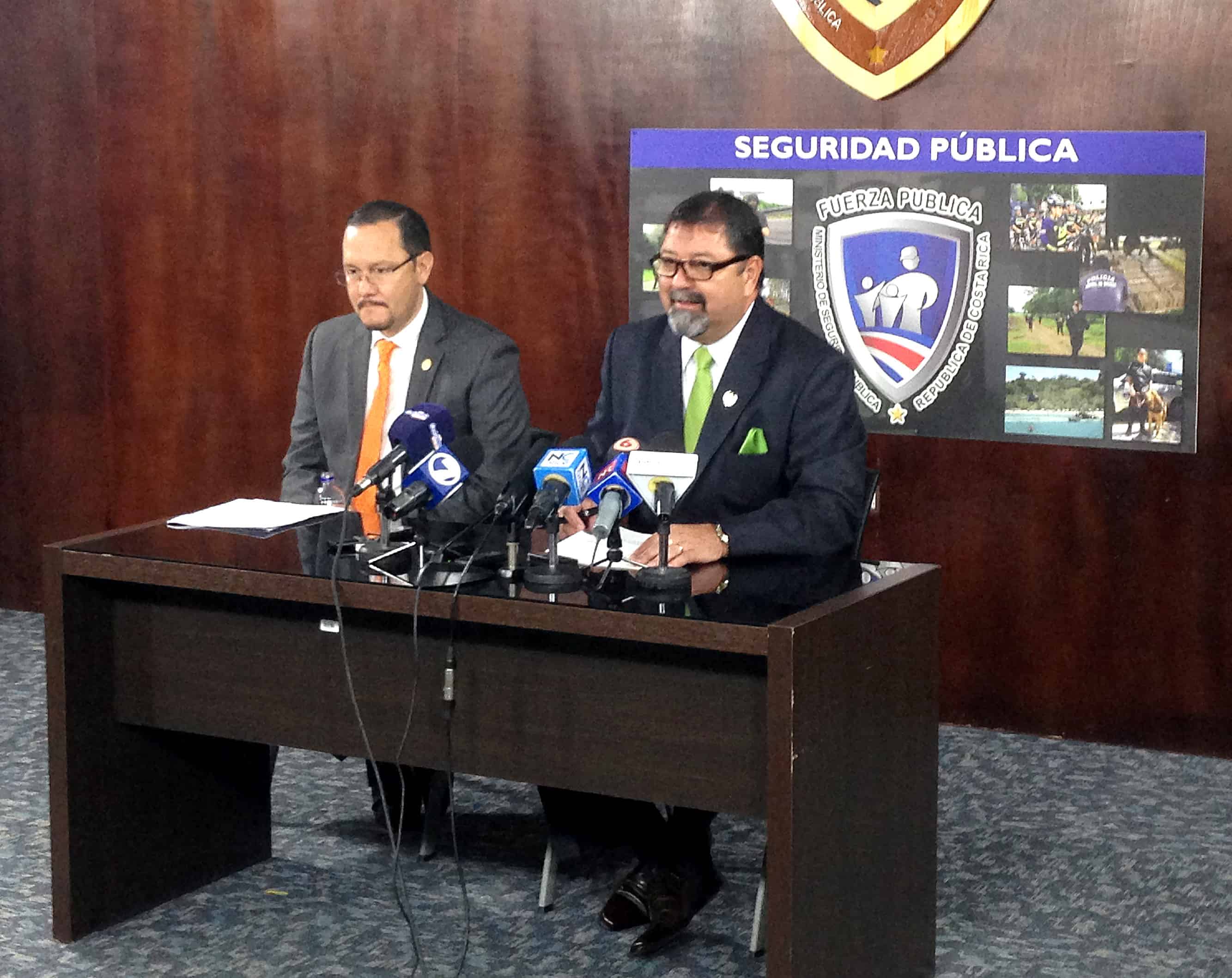It was a busy morning for Costa Rica’s law enforcement agencies. Agents from the Drug Control Police, the Judicial Investigation Police, and other agencies conducted 29 raids in multiple locations throughout the Central Valley targeting a large organized criminal network directed from La Reforma Prison, outside the Costa Rican capital.
The network’s alleged kingpin, who goes by the alias “Gordo Leo,” has been in prison since last year on drug trafficking charges. Nevertheless, authorities say he ran one of the biggest local drug trafficking, money laundering and homicide operations concentrated mostly in the south of Costa Rica’s capital.
At a Tuesday morning news conference, Public Security Minister Gustavo Mata and Assistant Director Celso Gamboa said Gordo Leo’s wife helped manage the network outside the prison, employing a legal staff, accountants and a squad of hired assassins. She was arrested on Tuesday along with an attorney and 16 other people, including Gordo Leo’s second-in-command, alias “Kique.”
Officials said the alleged crime ring operated mainly in the southern San José suburb of Desamparados, the southern district of Paso Ancho, and the western district of Pavas. These areas were recently targeted by a large police sweep following a spike in homicides and other violent crimes.
Authorities also raided locations in Alajuela, Heredia and Cartago, arresting a total of 18 suspects and seizing several weapons, including an AK-47, large amounts of cocaine, crack and marijuana, about $80,000 in cash, and five luxury autos. Gordo Leo’s cell at La Reform Prison also was searched.
Seven other suspects linked to the network had previously been arrested, Gamboa said.
“No one from this structure was left on the streets,” he added.
Attacking drug trafficking in Costa Rica
The lengthy investigation began on June 7, 2014 following two drug-related homicides south of the capital, where organized gangs have been battling for control of local drug trafficking areas and sales points, known as “bunkers.” According to Mata, each drug bunker — and there are dozens of them in the area — moves about ₡1 million ($2,000) a day in drug sales.
Between January and August of this year, Costa Rica registered 370 homicides, of which 202 were linked to organized crime, authorities previously reported. Part of that spike in drug-related homicides is attributed to Gordo Leo’s decision to move in on a rival gang’s drug turf, officials said Tuesday.
Their investigation “targeted the top leadership of these organizations, who were responsible for all of these deaths,” Mata said.
“We also focused on the structures of the criminal network. … And we have plenty of evidence to pass on to the Prosecutor’s Office,” Gamboa added.
Among the charges detailed in the investigation is significant laundering of drug profits.
“It was a clean operation, and one that was extremely important,” Gamboa said of Tuesday’s raids, which were carried out by 29 prosecutors, 29 judges and dozens of police agents. He added that Costa Rican law enforcement agencies have struck several blows against organized criminal syndicates this year.






